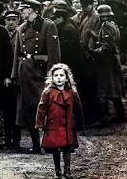We’ve all known those teachers who did nothing but show movies (or university basketball games) as their daily lessons. We look down on those teachers, shaking our heads, and asking how they get away with being such a drain on the academic system. And then, we get to a place in our content where a high quality movie really fits, and we question our justifications for showing it, even bits and pieces in our content strong classes.
And that is the best argument: Our questioning our selves, and being able to justify the use of these great films. Here are a few of the simplest justifications:
- They will help to engage our students in the content. This is the most powerful justification. Our students are visual learners now; it is all around them. If they are not “into” the lesson, we have lost from the start. If a feature film can draw that interest, we’ve scored a win from the start.
- Some films provide more content in two class periods that I could provide in a month! This is true of many of the films I have fought to show in my classes. Schindler’s List is the first to come to mind to justify this argument. Spielberg does an incredible job of showing the facts of antisemitism far better than I could ever attempt.
- Well done movies, even ones that are created as “fiction” can help to make a point better than any primary source could. I could teach imperialism all day long: read and re-read Kipling’s White Man’s Burden, show the political cartoons, and introduce the slave journals. And then I show Avatar, and all of a sudden, my students gain a sense of empathy they could not grasp before.

Still, some rules should be followed when showing movies in the content classroom. Keep these in mind, and reinforce that your follow them as you present your requests for showing such movies to your administrators!
- Never make it a habit or a time filler. Movies are wonderful for supplementing content, but they should not be your go-to for lesson planing to address content, or your fall back for filling a class period with a lame sub.
- Introduce movies only as a resource, an additional tool for providing strong content to your students. Always ask yourself if the movie holds its own, or if you will need to “explain things” afterwards. If it is the latter, where is the value?
- Allow students to practice taught skills when viewing movies in your classroom. Critical thinking is a skill practiced when watching any movie, but the good ones require the students to be at their sharpest to keep up with the pace.
- Do NOT interrupt or provide commentary. Students must make the connections for themselves. If you are always pointing it out for them, you might as well spoon feed them your entire curriculum. What is the point? Now, I do have a few exceptions to this rule: First, you must introduce the movies and set the expectations for your students. Tell them what you want them to find. And, wrap it up. As you finish the movie, allow students to discuss the film, and let them make the connections you hoped they would find. Finally, some things must be announced or they will be easily missed by the first time viewer. The prime example: As we view Schindler’s List in its entirety, I always calmly ask my students to watch for the color red as the first scene where it is present appears.
- Use guides or set expectations for expected behavior and attentiveness. Sleeping is NEVER allowed in my classroom, so it would not be accepted during a movie. Quiet discussion, however, may be helpful for students to evaluate what they see and hear. And on an important note, always be aware of your student’s maturity level and the requirements for each film. Get parent permission when needed (and even when not), and plan adequate learning activities for those unable to participate.

Movies can be very valuable in the classroom, when used effectively. Just always refer back to rule #1. When it becomes an expected activity in your classroom, just like any other “special” activity, it looses its effectiveness and you lose your power as that awesome teacher that is always changing things up and making learning fun!
A few of my favorites:
- By far, Schindler’s List tops my list. In teaching my 3 week Holocaust unit, I always made time for this very important film. I followed it by the TV version of Nuremberg, and both helps my students to connect the facts in a way they would not otherwise have the opportunity to do.
- Avatar is a great addition to my Imperialism units. While I had previously shown clips from Amistad, Avatar does a far better job at helping ALL of my students connect to the content.
- Luther is a great supplement, if time permits, for the Renaissance and Reformation unit. It shows much of the content students struggle with in our modern world, such as paying indulgences or other corruptions within the Catholic Church.
- Amistad is still a significant film to show in clips, emphasizing the treatment of the slaves in your units that cover the trade eras or slavery itself. The film will not keep the attention of most classes in entirety, but key points can be made with short excerpts.
- Good Morning, Vietnam is valuable in showing the discontent and unexpectedness of the Vietnam conflict, but if you do not have an edited version, it can be too much for any classroom.
- Saving Private Ryan is another good one for showing the aspects of war, with consideration made in assurances for accuracy in the film making process. This is one, however, that I only show clips from to emphasize specific points.
- Sometimes, there are lessons that do not cover content, yet are still desperately needed for your student’s benefit. The Emperor’s Club does a wonderful job in importance of academic honesty.
And I’m sure the list could go on and on for those teaching Science classes or ELA. Just remember, just because a movie is given the same name as significant content (eg. Romeo & Juliet) does not mean it is significant or appropriate for your middle and high school students to view!
Now, on this rainy Saturday is usually sunny Orlando, I’m going to get back to my movie… I hope he saves the Tree of Life this time!
Oh, but before I forget, here are a few useful movie guides or activities from my TpT Store:
- Avatar Viewing Guide for Age of Imperialism Connection
- Holocaust Complete Unit Study Package
- Renaissance & Reformation Complete Unit

Happy Teaching!